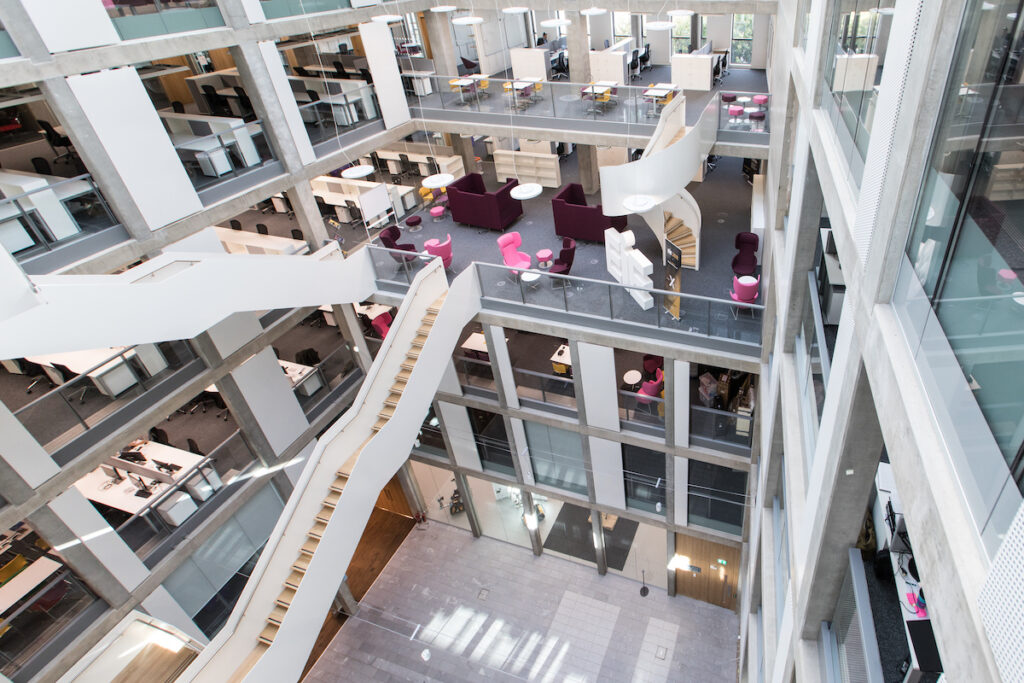The Princess Royal has officially opened Edinburgh University’s Bayes Centre, which aims to develop and apply data science and AI “for the benefit of society”. Around 600 experts from research and industry will make use of large datasets and a high-speed analytics facility in a bid to improve people’s lives.
Their work will include identifying trends from healthcare data to improve disease management, analysing traffic data to improve transport, or enabling businesses to improve products or services.
The £45m building houses researchers, students, and entrepreneurs over five floors and its architecture, featuring open spaces, a central atrium and open terraces, is intended to foster collaboration among occupants.
“We look forward to bringing together experts from research and industry in this collaborative space, to apply data science and AI to some of society’s most interesting challenges and opportunities,” said Dr Michael Rovatsos, the centre’s director.
The Bayes Centre is the first of five data-driven innovation hubs being created as part of the recently announced Edinburgh and South East Scotland City Region Deal.
“It’s great to see this exciting project, backed by £30m of UK Government funding, officially opened,” said David Mundell, the Secretary of State for Scotland. “It is a superb example of why data-driven innovation is at the heart of the UK Industrial Strategy, and one of many exciting projects being delivered as part of the £1.3 billion City Region Deal.”
The new hubs will help business and public sector organisations improve products and services through collaboration with researchers and data analysts. They will embed their research and development teams in the university environment to facilitate collaboration. The initiative is supported by Scottish Enterprise, which has part-funded the Bayes Innovation Programme to help encourage this collaboration.
The City Region Deal’s Data-Driven Innovation initiative includes the university’s Easter Bush Campus, the Bayes Centre, Edinburgh Futures Institute, Usher Institute, and the National Robotarium – a partnership with Heriot-Watt University. The Bayes Centre shares a courtyard and walkways with the university’s Informatics Forum – home to some 500 computer scientists – and the Dugald Stewart Building, which houses Edinburgh’s language sciences experts. It was designed by architects Bennetts Associates.
The building takes its name from the Reverend Thomas Bayes, who studied logic and theology at the Edinburgh University in the 1700s. He is best known for devising Bayesian statistics, the mathematical foundation for reliable forecasting. It is widely used today, for example in the financial markets, the weather, or to filter email spam.
